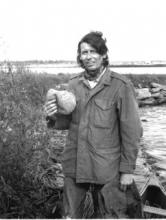By Emily Skov-Nielson
Rachel Rose's poems "Corona for Charlotte," "Good Measure," and "Sunflowers" appeared in The Fiddlehead Autumn 2015 issue.
Rachel Rose is currently Vancouver’s Poet Laureate. She has published four collections of poetry: Giving My Body to Science, Notes on Arrival and Departure, Song and Spectacle, and most recently, Marry & Burn. She is also a short story writer and an essayist whose work has been published in literary magazines and anthologies across Canada and the United States. Her poem, “Sunflowers” (among others), is featured in The Fiddlehead Autumn 2015 issue.
Photograph by Thomas Langdon


















